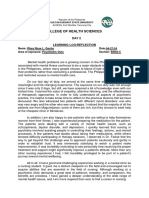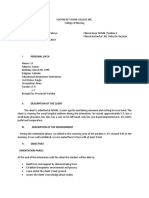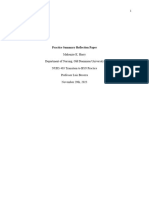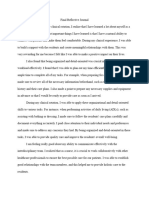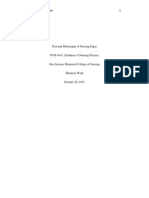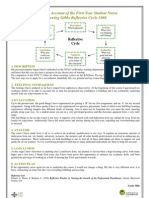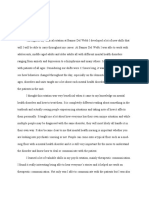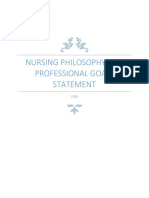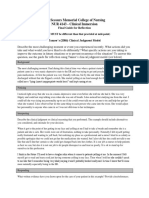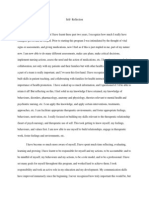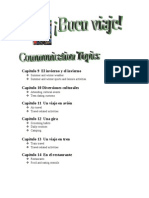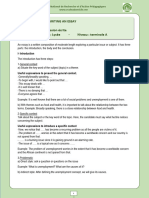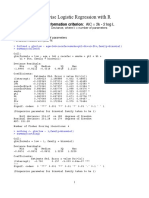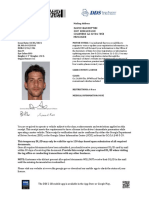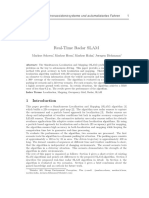0% found this document useful (0 votes)
7 views3 pagesFinal Assignment
The reflection journal details the author's experience in a healthcare setting, focusing on their goals to improve communication and patient-centered care. The author discusses their emotional challenges, ethical considerations, and the importance of treating all patients equally, while also highlighting the positive outcomes of their reflective practice. Ultimately, the author expresses gratitude for the lessons learned and the personal growth achieved through their interactions with patients.
Uploaded by
ENOCK BENDERECopyright
© © All Rights Reserved
We take content rights seriously. If you suspect this is your content, claim it here.
Available Formats
Download as DOCX, PDF, TXT or read online on Scribd
0% found this document useful (0 votes)
7 views3 pagesFinal Assignment
The reflection journal details the author's experience in a healthcare setting, focusing on their goals to improve communication and patient-centered care. The author discusses their emotional challenges, ethical considerations, and the importance of treating all patients equally, while also highlighting the positive outcomes of their reflective practice. Ultimately, the author expresses gratitude for the lessons learned and the personal growth achieved through their interactions with patients.
Uploaded by
ENOCK BENDERECopyright
© © All Rights Reserved
We take content rights seriously. If you suspect this is your content, claim it here.
Available Formats
Download as DOCX, PDF, TXT or read online on Scribd
/ 3




